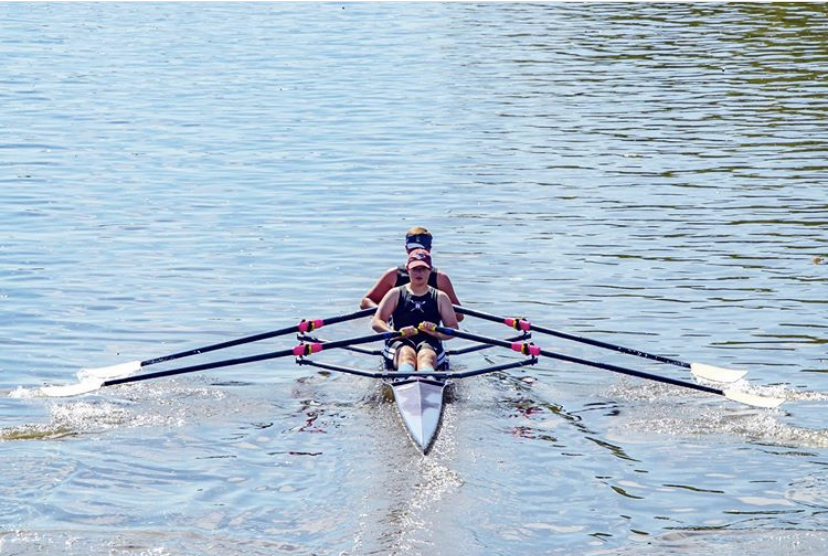Rowing is a very demanding sport, one that requires mental and physical discipline. Ridgewood Crew head coach Boris recognizes this. In order to prepare for a race, whether it is the dreaded 2000 km, 1500 km, or 5000km, rowers must train intensely and consistently. In order to be placed in a competitive boat, athletes must be strong-minded and diligent, understanding that this may mean he or she will have to practice alone in the mornings in addition to the mandatory practices held six days a week. Rowers usually train in the late fall and winter indoors for around four months, then get on the water mid-March. This type of flexibility is typical for Ridgewood Crew rowers.
Rowing is a very expensive sport, so rowers are expected to fundraise on their own, nearly one-thousand dollars, in addition to the hefty fees demanded for participation and equipment usage. The organization is privately funded and not part of the regular athletic department. The team is not even guaranteed space to hold practices: members workout in the weight-room and erg in the cafeteria, but when it is occupied, rowers are often forced to heave ergs onto the turf-field in the sometimes below freezing weather. Rowers are expected to be prepared to change where practice is as late as an hour before practice starts. The weather permits an early start to the water season this year, an excellent example of the unpredictability of the practice schedule.
Ridgewood rowers are not known as the strongest individuals in the high-school or the fastest on rowing machines but year after year are recognized as champions. So how do they do it?
They take every practice seriously, focus on technique, and always look for improvements. Mentality is everything. Rowers are never satisfied and recall any victory with a “short-term memory΅. A typical week of practice in a winter consists of one off-day, and every other day rowers weight lift and perform circuits with sprints. On the other days, they erg (workout imitating the motions of rowing on a machine). There is typically a pattern with the erging pieces: at the beginning of the week, pieces start as long distance; middle of the week is mid distance; the end of the week usually entails sprints. Rowers get sunday off, unless the weather permits rowing on the water or there is a technique session at West Point in New York. When rowers start spring practice it is typically follows the same outline except instead of erging they row on the water. Towards the middle of the spring season they are on the water almost every day. Races are every to every other weekend starting in late March so rowers get Mondays off. During spring break rowers are expected to row for four hours every day of the week – it is a requirement in their contract. In addition, rowers must travel to races as a team so they often have to wake up at 3 or 4 in the morning in order to make everyone’s race on time. The Ridgewood Crew schedule, although demanding, gives many rowers structure and yields impressive race results.
Victoria Lyakerman and Lauren Sudol
staff writers
Graphic: Sofia Lee

